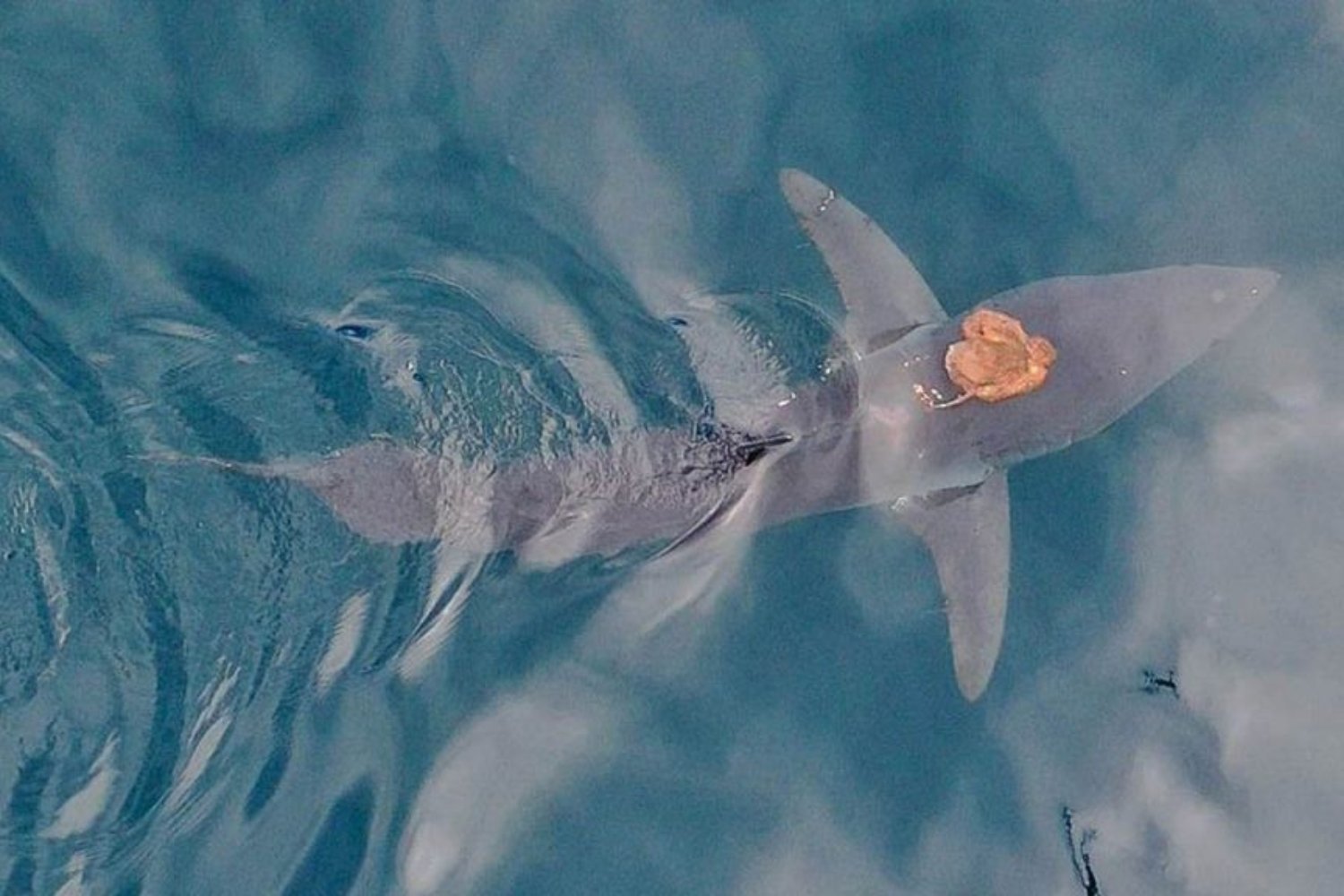We’ve been treated to an unforgettable sight: an aquatic buddy comedy movie come to life. Footage released by New Zealand scientists shows an octopus seemingly riding on the back of a shortfin mako shark.
During an expedition to the Hauraki Gulf near Kawau Island in December 2023, researchers from the University of Auckland captured the extraordinary encounter. The sighting was unusual for several reasons, primarily because octopuses are not typically found near the water’s surface.
Rochelle Constantine, a professor in the School of Biological Sciences, shared her team’s remarkable experience in an article published by the university last week. As part of an ongoing project monitoring the animals of the Gulf, including sharks, the researchers stumbled upon the unlikely pair.
According to Constantine, “A large metallic grey dorsal fin signaled a big shark, a short-fin mako. But wait, what was that orange patch on its head? A buoy? An injury? We launched the drone, put the GoPro in the water and saw something unforgettable: an octopus perched atop the shark’s head, clinging on with its tentacles.” The footage of this encounter is available below.
Typically, octopuses are deep sea dwellers, whereas mako sharks (Isurus oxyrinchus) prefer the surface waters. The circumstances surrounding this ride-along are unknown, as the researchers only tracked the animals for ten minutes. It’s also unclear what became of the duo. However, for the octopus, it could have been an exhilarating experience, considering mako sharks are the fastest of their kind, reaching speeds of up to 50 miles per hour (80 kilometers per hour).
Constantine views this encounter as a fascinating example of how much remains to be discovered about the aquatic world surrounding us, emphasizing the importance of studying and protecting these waters. She notes that while sharks are often the subject of cinematic nightmares, they pose less of a threat to humans than we do to them. For instance, last year, there were only 47 documented unprovoked shark attacks and seven total deaths worldwide.
According to Constantine, “One of the best things about being a marine scientist is that you never know what you might see next in the sea. By supporting conservation initiatives, we can help ensure that such extraordinary moments continue to happen.”
Source Link





